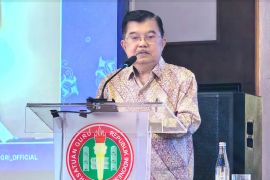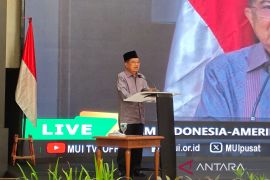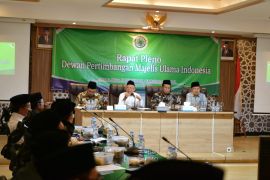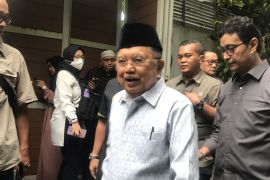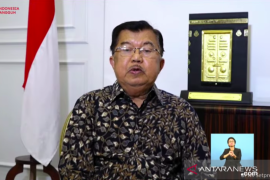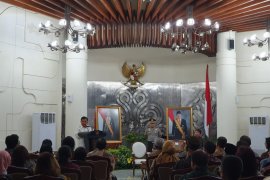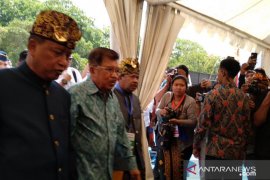"The congress is expected to offer objective and correct information to the community," Kalla said here on Tuesday.
In his speech, Kalla noted that the world is currently developing at a swift pace, especially with regard to the delivery of information across the country through computer and internet access.
"In the past, conventional news outlets would conduct editorial meetings to determine the content. Now, the news content is not really important, but the speed is given greater weightage," the vice president pointed out.
Hence, in the digital age, offering objective and accurate information is the need of the hour.
"Journalists should provide accurate and objective news coverage in an attempt to maintain unity," he remarked.
Such rapid changes also affect the existence of media in the world.
"News is what has happened, what is happening, and what may happen; the limit is very wide," the vice president stated.
The cyber media currently has a significant influence on public opinion, especially in Indonesia.
The information available to the public should be accurate and correct, he stated.
"You influence the opinion of the people in Indonesia. If you convey accurate information, the publics opinion will be true. On other hand, if you deliver hoaxes, the publics opinion will be wrong," he revealed.
Currently, the AMSI has 180 media members and continues to grow to some 300, spread across 17 provinces.
The AMSI was inaugurated on April 18, 2017, at the Press Council, with the aim of improving media in the digital world in Indonesia, especially the circulation of fake news on social media.
Facebook plans to send more potential hoax articles to third-party fact checkers and display their findings below the original post, the worlds largest online social network, announced on Thursday as it attempts to fight the circulation of so-called fake news, Reuters had earlier reported.
The company said in a statement on its website that it will start using updated machine learning to detect possible hoaxes and send them to fact checkers, potentially showing fact-checking results below the original article.
Facebook has been criticized for being one of the main distribution points for so-called fake news, which many think influenced the 2016 US presidential election.
The issue had also snowballed into a major political topic in Europe, with French voters deluged with false stories ahead of the presidential election in May and Germany backing a plan to fine social media networks if they fail to remove hate posts promptly, ahead of elections there in September.(*)
Editor: Heru Purwanto
Copyright © ANTARA 2017
